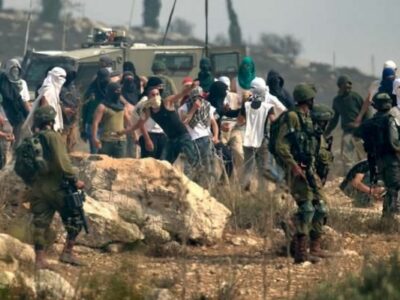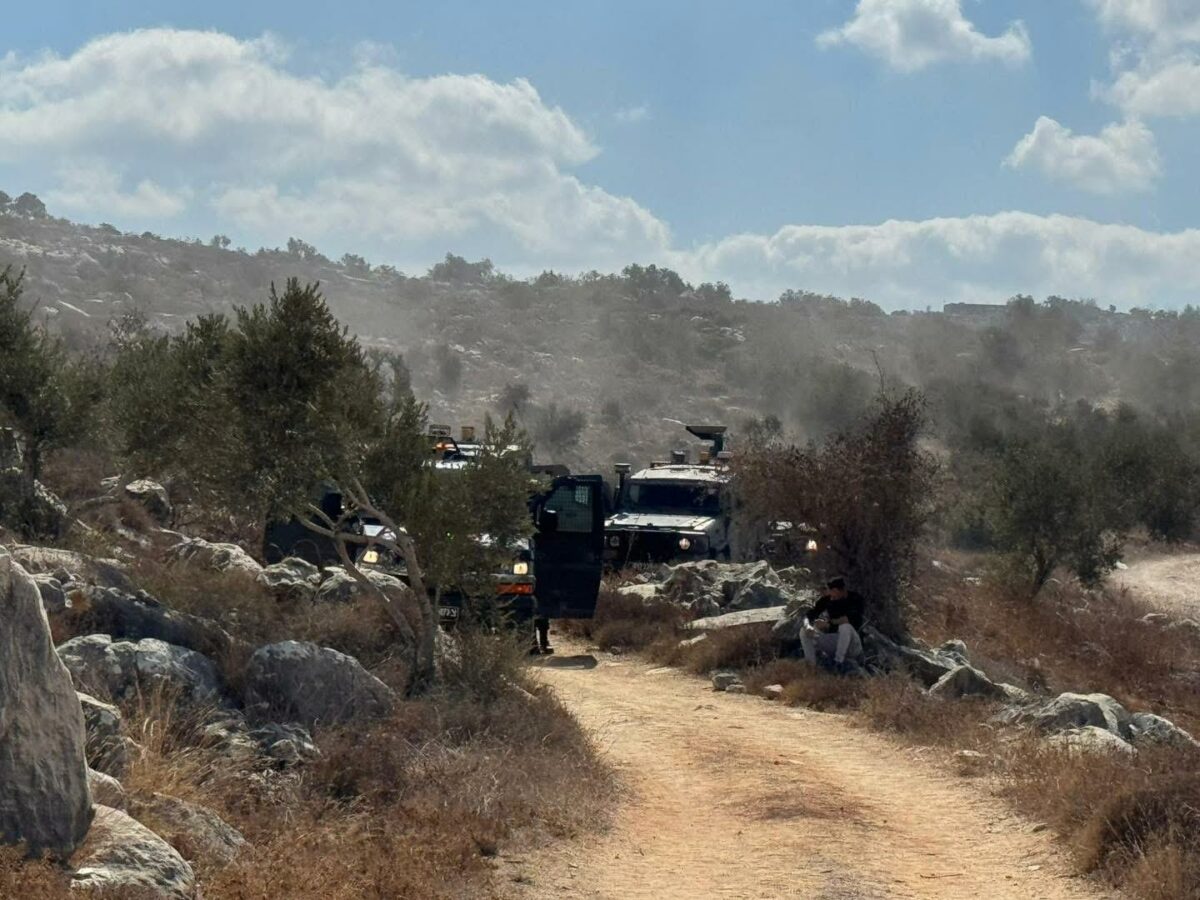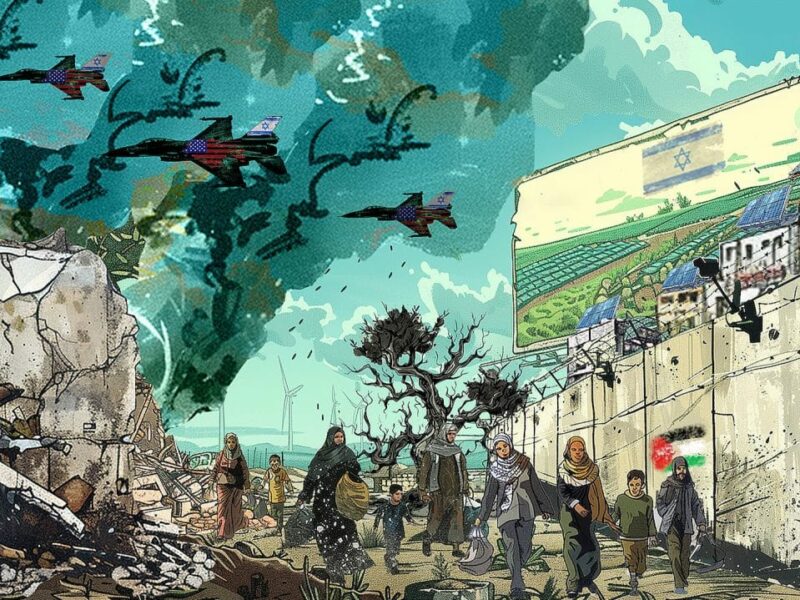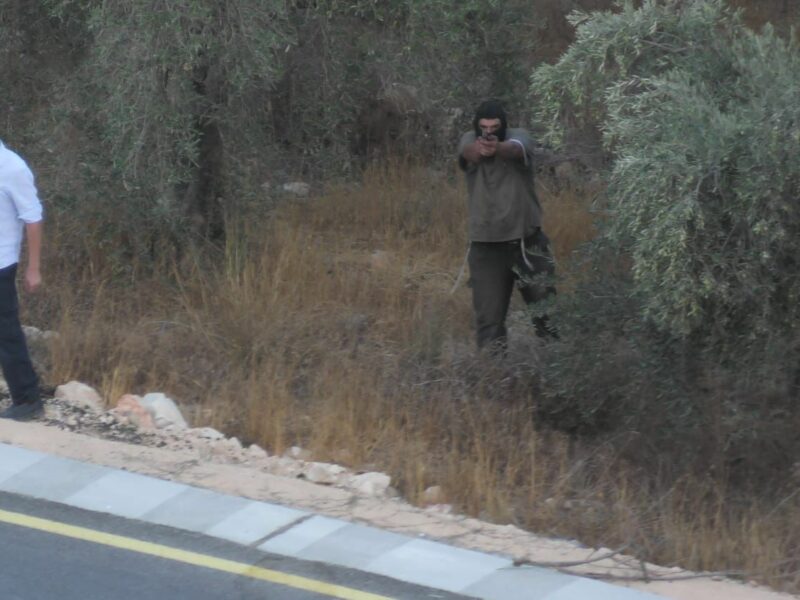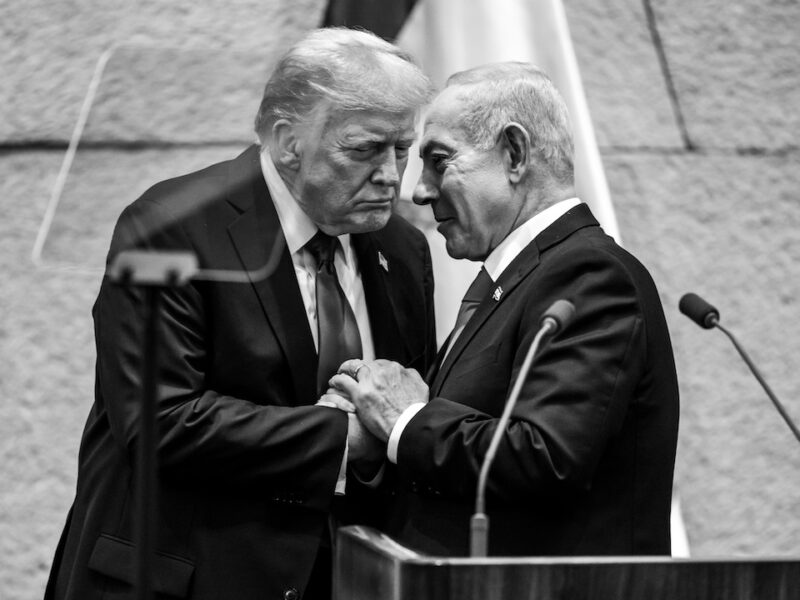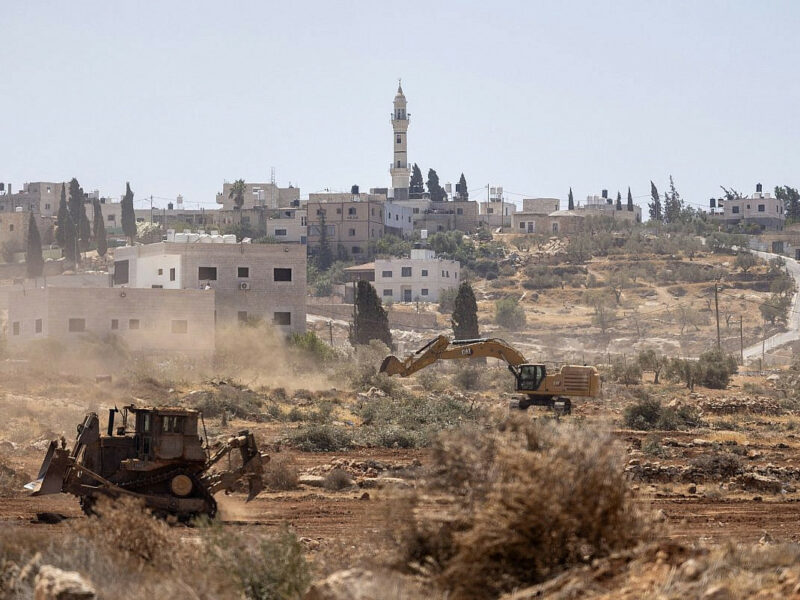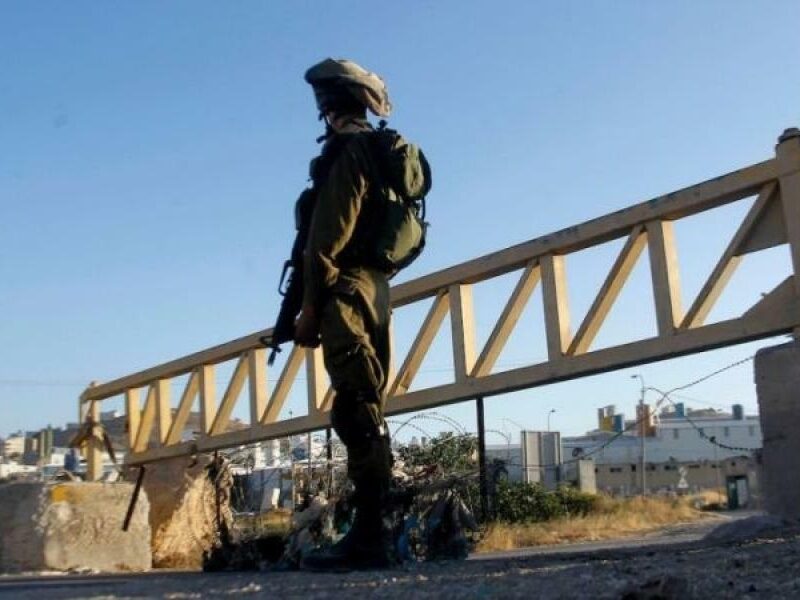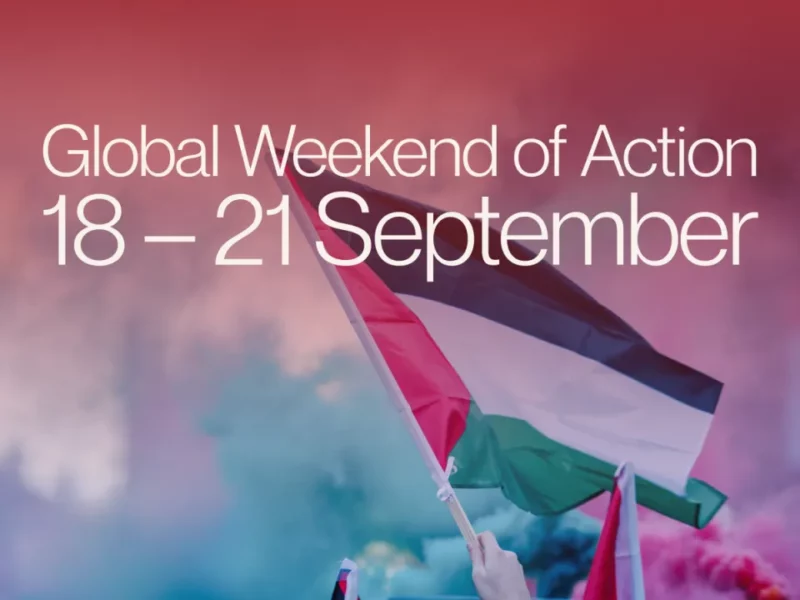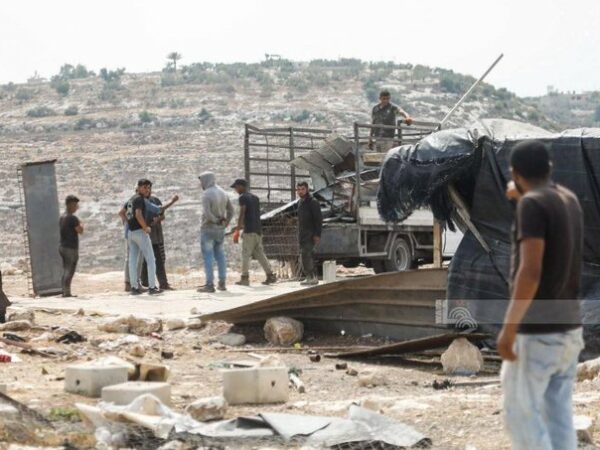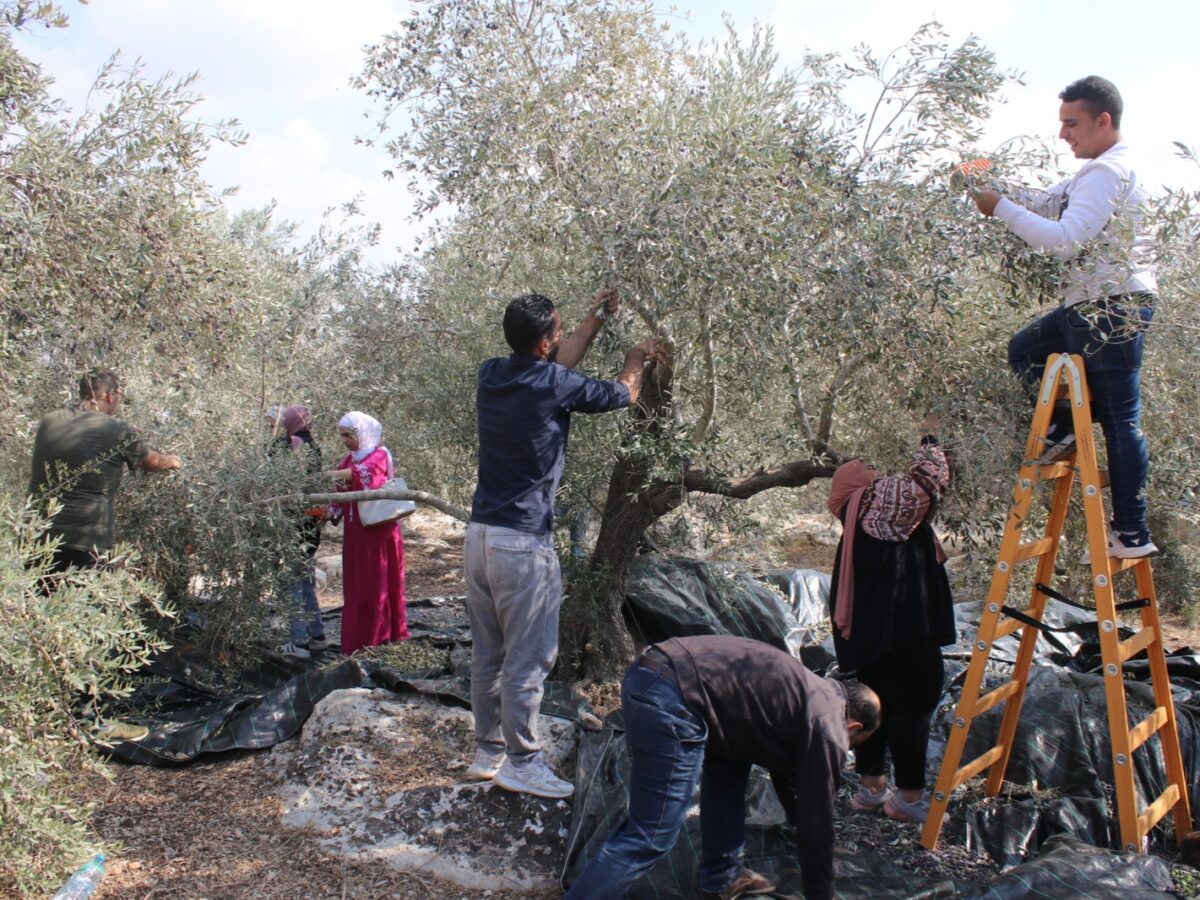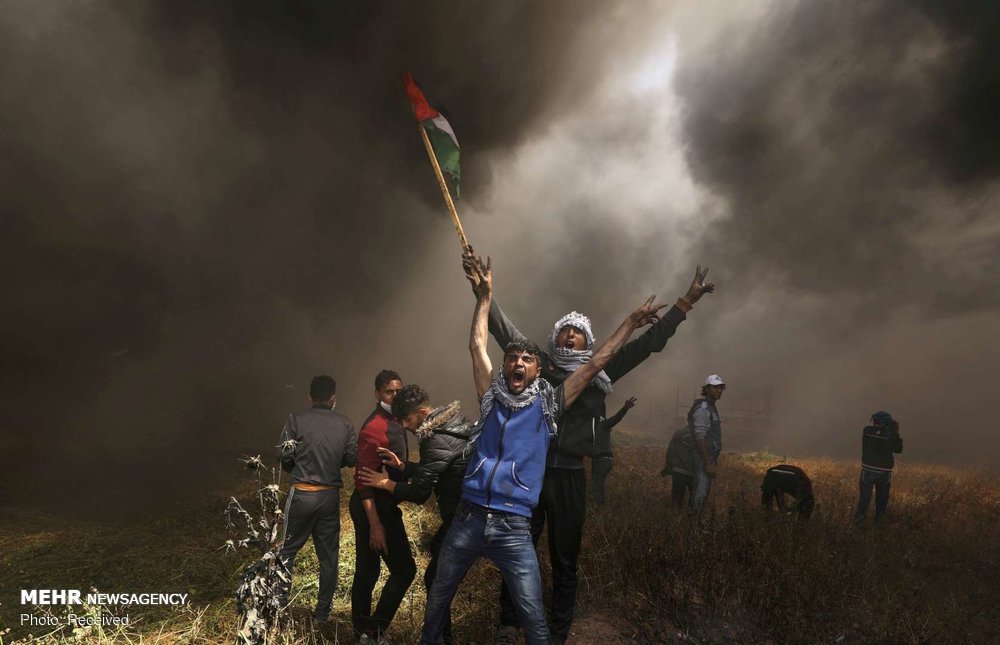
SPECIAL
RIGHT TO EXIST Campaign
The Right to Exist Campaign focuses on four rights: The Right to a Home, to Land, to Water and to Education.
We support Palestinians threatened with expulsion and strengthen their sumud (Arabic: steadfastness), their resolve to stay on the land despite Israel’s attempts to forcibly displace them.
We will act whenever Israel denies Palestinians the right to water, education, building and access to and cultivation of their land.
The Right to Exist Campaign is our response to Israel’s relentless attempts to obliterate Palestinian presence as a people, a culture and a lifestyle.
We are present with support to fight Israel’s accelerating home demolitions and its attempts to destroy entire communities.
We fight settlement outposts through demonstrations and permanent sit-ins. We organize together collective actions during the olive harvest, voluntary work to plant trees and reclaim land. We restore springs and build water reservoirs, village schools and help to equip kindergartens.
We back up individual acts of sumud and support communities that organize collectively.
We mobilize international solidarity and call on the international community to take action to stop Israel’s policy of displacement aimed at caging us into apartheid-style Bantustans.
ISSUES

#DefendMasaferYatta from Ethnic Cleansing
Some 1,300 Palestinians living in eight villages in the area of Masafer Yatta face imminent ethnic cleansing. This would be the largest expulsions carried out by the Israeli apartheid regime since the 1970s. Yet, we know that grassroots resistance combined with international pressure is the only way to make a difference.

Right to a home
Ongoing and daily demolitions of homes and communities embody the full cruelty of Israel’s policy of expulsion.

Right to land
The Palestinian struggle is essentially a struggle to regain self-determination on their ancestral land.

Right to water
The water crisis is a result of Israel’s systemic attack on Palestinian water rights and a policy of water apartheid and water pillage.

Right to Education
Israeli colonial policies attempt to transform education into a tool to dominate the Palestinian people.

Israel’s hilltop strategy in Area ‘C’
This report investigates Israel’s hilltop strategy aimed at isolating and annexing the Jordan Valley and sounds the alarm about the urgency to defend the struggle of Palestinians to protect their rights against Israel’s efforts to consolidate its control until the Jordan River.

Denial of education: An Israeli apartheid tool to colonize the Jordan Valley
Israel weaponizes the denial of education to Bedouin communities in the Jordan Valley as a coercive measure to ethnically cleanse them from their lands. As of 2019, the Israeli occupation has given over 42 schools in Area ‘C’ orders to be partially or totally demolished. The following schools which particularly serve Bedouin communities in the Jordan Valley are among the threatened schools by demolition.

Denial of education: An Israeli apartheid tool to colonize the Jordan Valley
Israel weaponizes the denial of education to Bedouin communities in the Jordan Valley as a coercive measure to ethnically cleanse them from their lands. As of 2019, the Israeli occupation has given over 42 schools in Area ‘C’ orders to be partially or totally demolished. The following schools which particularly serve Bedouin communities in the Jordan Valley are among the threatened schools by demolition.
Show more
To exist is to resist
There shall be no doubt: Palestinians don’t only want to exist. We demand freedom, justice and equality and the full menu of rights offered to us by international law.
The Right to Exist campaign highlights that Israel’s policies of apartheid, settler colonialism and occupation aim to deny us even the mere right to be on our land. Our mere existence has become resistance.
The culture of sumud (steadfastness) that we have developed over generations is at the heart of this resistance.

Israel’s very foundation is built on the mass expulsion of over half of the Palestinian people and the destruction of over 500 Palestinian cities, villages and communities during 1948/9. The mass expulsion of Bedouin communities has continued until the early 1950s. And this Nakba (Arabic: catastrophe) continues until today.
Palestinian communities are threatened, non recognized, deprived of access to vital infrastructure and demolished, whether they are formally Israeli citizens or Palestinians under occupation.
The ongoing effort to expel Palestinians in order to settle a Jewish population in their place is a core pillar of Israel’s policy, justified or even mandated by Zionism, the European settler colonial ideology on which Israel has been founded.

As much land with as few people as possible
Israel’s current aim has been presented to the world in 2020 through the map presented as part of Donald Trump’s “Deal of the Century”. It implies the de jure annexation of 33% of the West Bank. Over 75 Palestinian villages, Bedouin and semi-Bedouin communities are to be annexed, with a total population of 118000.
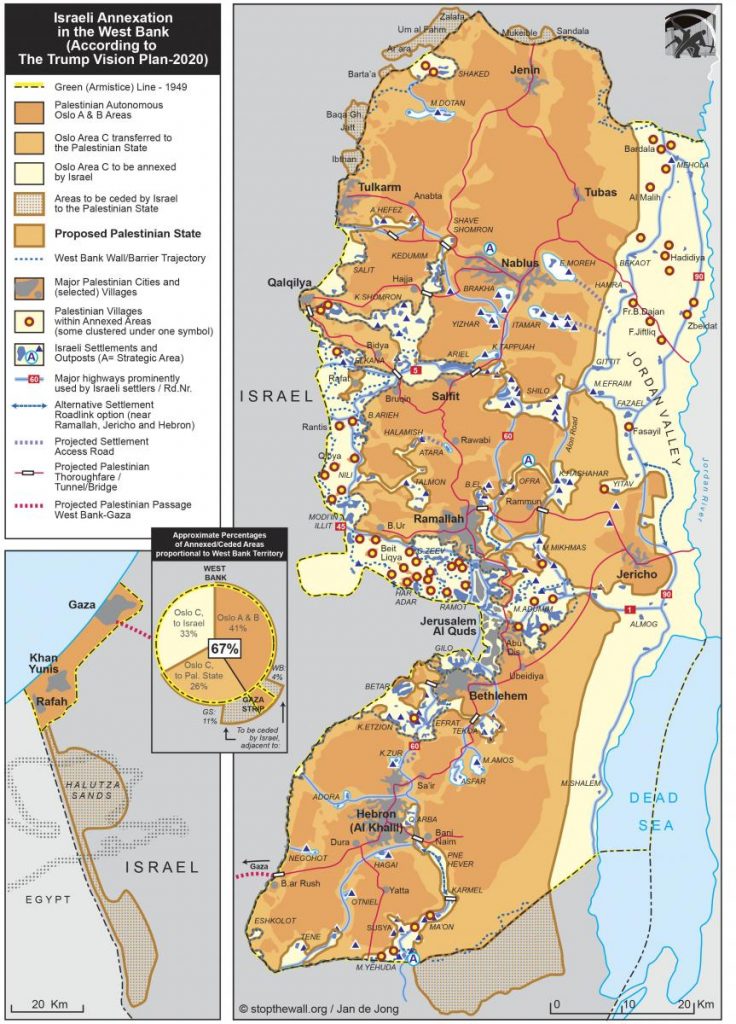
In the West Bank, Israeli colonial interests have been focused since the beginning of the occupation in 1967 on strategic areas, especially the Jordan Valley and Jerusalem and surroundings. This is evident from the maps for annexation produced by Israel. They include the Allon Plan (1967), the Sharon Plan (1977), and the Drobles Plan (1978). Since 2015 the Israeli Knesset proposed over sixty bills about annexation.
After the signing of the Oslo Accords between Israel and the Palestine Liberation Organization in 1993, the areas Israel aims to annex have become designated as Area ‘C’. According to the Oslo Accords, Area ‘C’, constituting 61% of the West Bank, are “areas of the West Bank outside Areas A and B, which, except for the issues that will be negotiated in the permanent status negotiations, will be gradually transferred to Palestinian jurisdiction in accordance with this Agreement.”
Area C is richly endowed with natural resources and it is contiguous, whereas Areas A and B are smaller territorial islands making it at the coreo f a future Palestinian state. According to the Interim Agreement, the gradual transfer should have been completed by 1997. However, Israel continued to implement its annexation maps without interruption in the áreas that became to be known as Area ‘C’ as part of the attempts to de facto annex it, which started in 1967.
Israel takes over land in Area ‘C’ through various means. Some areas are simply declared a ‘firing zone’ for the use of the military or ‘natural reserves’. In most parts, Israel uses a legal settler scheme that denies collective ownership and a national project – the fundamental right to self-determination – while demanding criteria for proof of private ownership that are almost impossible to achieve. Land is continuously being confiscated on the grounds that it is considered “state land”, land for which no individual owner can provide proof of private property that is accepted by Israeli courts. Other land is being confiscated when it hasn’t been cultivated for three years.
Devastating demolitions
In Area ‘C’ of the West Bank, including East Jerusalem, since 2009 some 7,400 Palestinian-owned structures have been destroyed, resulting in the displacement of over 11,000 people from their homes, including some displaced more than once. In 2020, 848 Palestinian structures have been destroyed or damaged and 996 Palestinians have been displaced. This was the highest number of demolitions since UN OCHA started its statistics, with the exception of 2016. Since the beginning of 2021 alone, at least 152 structures, of which 37 were donated, have been destroyed, rendering at least 184 Palestinians homeless.
The increase in home demolitions is not only a de facto reality but is facilitated by new legislation that further denies Palestinians any possibility to recur to courts and gives more freedom to the military to destroy and seize Palestinian property at will. In particular, the seizure of ‘movable structures’, which includes roofs, doors and windows of homes and schools, has increased under these new rules.
Thirsting for Justice
Only three days after the occupation of the West Bank, Israeli forces issued military orders 92 and 158 that allowed the military to shut down all water institutions that existed in the West Bank. Since then, Israel has prevented Palestinians from building or maintaining existing water infrastructure. Today, Palestinians control only 13% of its water reserves.

This artificially created a water crisis and ensures that many communities don’t have access to water or don’t have sufficient access for their personal needs, animal husbandry and/or agriculture. Cutting off water from the population is yet another element in the policy to drive Palestinians out of their land and communities.
Denial of education as a means of ethnic cleansing
Israel’s apartheid policies in Area ‘C’ makes it impossible to obtain building permits. This has prevented Palestinians there from developing basic services. Education has been badly affected by these policies. According to UN OCHA, over a third of the residential areas in Area ‘C’ lack a primary school and children are forced to travel long distances, sometimes on foot, to reach the nearest school.
Some children, including those in the Israeli-controlled area of Hebron City (H2) must wait at military checkpoints for inspection. There, these children are usually subject to the ill-treatment, intimidation and harassment of armed Israeli soldiers on the way to school.
Bedouin communities in the Jordan Valley, the South Hebron Hills and E1 Area in the vicinity of Jerusalem lack schools or kindergartens within their communities. This has forced parents to send their male and female children to distanced schools and kindergartens.
The daunting and precarious journey to reach school forces Bedouin communities in the Jordan Valley and other áreas to adopt negative coping mechanisms. This is seen in withdrawing children from school, a practice that has its consequences particularly on girls. As the Israeli restrictions on Palestinians’ access to education intensify, the level of education of the current generation is lower than the previous ones.
The Right to Exist Campaign stands up against these existential threats to the Palestinian people.
This is a crime
Displacement, land confiscation, pillage of water reserves, destruction of homes and demolition and confiscation of property, the denial of access to adequate health and sanitation infrastructure as well as educational facilities, combined with the colonization of the lands that have been ethnically cleansed from Palestinians through Jewish-only settlements – all these policies violate the full range of the most basic principles of international law.
These policies amount to de facto annexation and is a violation of the most basic international law principle: the prohibition of conquest of territory by force. They violate the Palestinian right to self-determination.
Israel as an occupying power
Land confiscation and wanton destruction of property are a clear violation of the IV Geneva Convention, the international treaty defining duties and obligations in times of war and in situations of occupation.
Similarly, the Occupying Power has the duty to ensure and maintain “the medical and hospital establishments and services, public health and hygiene in the occupied territory” as well as “the proper working of all institutions devoted to the care and education of children.” Demolishing schools and health clinics are the exact opposite of these obligations.
The change of the legal and demographic setup of a territory under occupation by the Occupying Power is illegal. This means that building requirements and other military orders and laws are illegal, if they do not respond to immediate military necessity. The displacement of the occupied population and the transfer of population of the Occupying Power to occupied territory is another violation of the IV Geneva Convention. The use or pillage of natural resources for the interest of the population of the Occupying Power is also prohibited. The Occupying Power is instead obliged to ensure economic and social development of the people under its occupation.
Israel’s policies are in serious and ongoing violation of these norms and clearly amount to war crimes.
Israel as an apartheid regime
Israel’s policy of displacement of Palestinians aims to herd them into underdeveloped ghettos or reserves designed for them by the construction of Israel’s apartheid Wall and its associated regime of colonial conquest. In some cases, Israeli forces explicitly define locations to which the communities are to be relocated.
Israel implements policies of deprivation, such as the denial of access to water and sanitation, health care and education and other infrastructures, as well as the outright demolition or confiscation of homes and built-up structures. These are among the core tools Israel uses to displace the populations into reserves.
Land confiscation is yet another core element to drive people off their land and into the reserves.
That corresponds to the exact definition of apartheid under the UN Convention on the Suppression and Punishment of the Crime of Apartheid. It lists policies such as:
- “the deliberate creation of conditions preventing the full development of such a group or groups, in particular by denying to members of a racial group or groups basic human rights and freedoms”. These rights include the right to work, the right to education, the right to freedom of movement and residence.
- “Any measures including legislative measures, designed to divide the population along racial lines by the creation of separate reserves and ghettos for the members of a racial group or groups”.
- “the expropriation of landed property belonging to a racial group or groups or to members thereof”.
Duty to Act
The IV Geneva Convention, the UN Convention on Apartheid, the Rome Statute that defines the process and scope of criminal investigation of the International Criminal Court into war crimes and crimes against humanity, including the crime of apartheid, clearly put the duty to act to stop such crimes and to prosecute those responsible on the entire international community.
In 2004, the International Court of Justice Court (ICJ) ruled on the legal consequences of Israel’s construction of the Wall. In this verdict, the Court underlined that Israel’s serious violations of the IV Geneva Convention and the peremptory norms of international law are of concern to the entire international community. They result in legal obligations for all States and the United Nations not to aid and assist them and to stop them.
The Pre Trial Chamber of the International Criminal Court (ICC) recently affirmed that the Court has full territorial jurisdiction over the occupied Palestinian territory i.e. the West Bank, including East Jerusalem and the Gaza Strip. Shortly after, the Office of the Prosecutor of the ICC decided to open a full criminal investigation into the Situation in Palestine. These are critically important steps towards ending impunity and upholding the international rule of law, while ensuring the dignity and rights of the Palestinian people.
More needs to be done, including:
- The United Nations and its Member States to recognise and denounce Israel’s policies against the Palestinian people as war crimes of an Occupying Power, violation of the Palestinian right to self-determination and constituting the crime of apartheid;
- The international community to resort to all available mechanisms to achieve international justice and accountability, and in particular, to intervene immediately to impose a military embargo, to economically sanction Israel, and to hold individuals including corporate actors who may have committed war crimes criminally accountable, where they are present in their territory or nationals of the State Party;
- All States parties to the Rome Statute and Third States to publicly support and fully cooperate with the Office of the Prosecutor of the ICC as per the obligations set forth in Article 86 of the Rome Statue, and in line with Common Article 1 of the four Geneva Conventions and Article 146 of the Fourth Geneva Convention, to ensure the arrest and transfer to the Hague of persons investigated and accused of international crimes, and to prevent the continued perpetration of international crimes against the Palestinian people.
- The Human Rights Council to establish an independent Human Rights Council fact-finding mission into Israel’s apartheid regime and associated obligations of states, international organizations and business enterprises;
- The Office of the High Commissioner for Human Rights to further develop in a transparent manner the UN database on business enterprises involved in Israel’s illegal settlement enterprise.
DONATE NOW
Join the Stop the Wall Campaign to tear down Israel’s apartheid Wall!
Our joint struggle is becoming the weak spot for the Israeli occupation.
YOU CAN MAKE A DIFFERENCE!
We are strong with you standing with our struggle!

